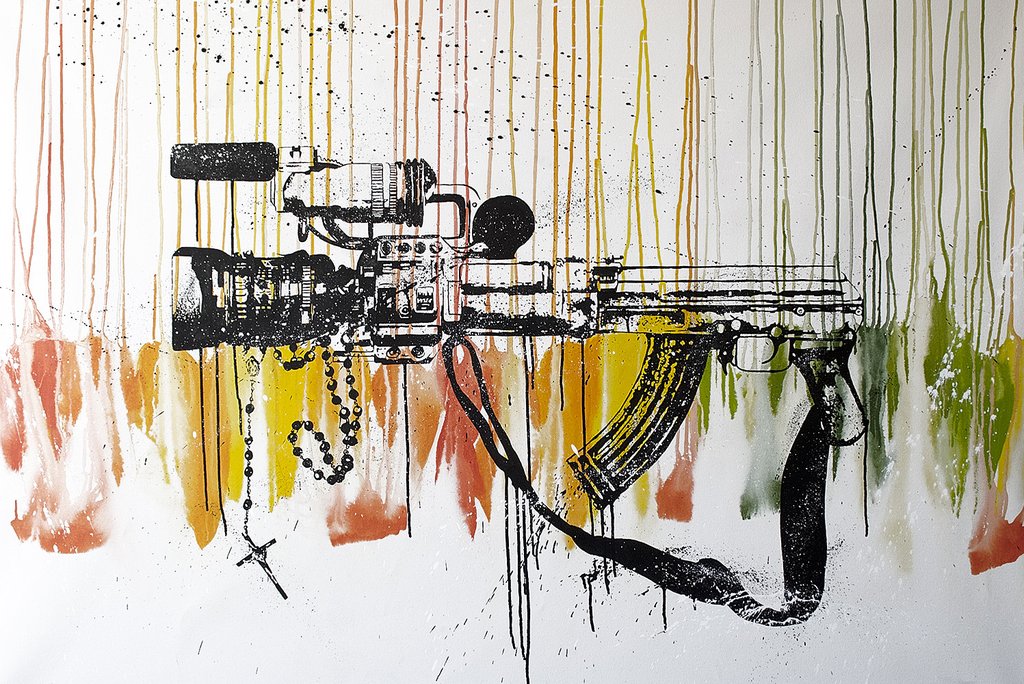Media is considered as the fourth pillar of a democracy and its influence on people’s minds is undeniably huge. It not only possesses the capacity to mould the opinion of the people but also in many ways holds the power to change the very perception of how the hoi polloi view things. The media trials in India have witnessed a sudden spike, that is sensational and controversial coverage of high profile cases which majorly includes holding such debates those declare someone guilty before the Court comes to a verdict The issue which began with the NRC protestors and their media trial has continued throughout the year with the most recent count of such an incident being the UPSC Jihad Controversy. Due to this, the Indian Media Industry has faced harsh criticism from both within the country as well as internationally. Whether it be the ‘Sushant Singh’s Case’ and the media trial of Rhea Chakraborty or the controversial ‘UPSC Jihad’ show by Sudarshan News, or recent coverage of ‘Farmers Protest’, media reporting has crossed the boundaries of freedom of speech and expression and have entered the domain of vilification. This recent development is alarming and especially at a time when India already is witnessing a backlash from nations which have pointed out the growing communal tensions. In view of the same, this article tries to understand the intricacies of the ‘media trials’ and while doing so tries to demarcate the line at which media reporting crossed the freedom ensured by the Indian Constitution and enters the unethical space of trials and staged vilifications.A better understanding can be developed from the infamous Indian case of Saravjeet Singh, where the man was dubbed ‘pervert’ and ‘Delhi ka darinda’ by the media, destroying his social and professional life. However, the man was acquitted later on. Ironically, though he stands acquitted, the media trials have tarnished his reputation beyond repair which is reflective in his statement, “Mr Arnab should apologise. He called me a pervert in front of the world but now the court has acquitted me. He crushed my image, so he should now restore it.” All these cases are reflective of the far-reaching consequences of media trials, and how they create a ‘social construct’, even making people question and undermine the legitimacy of Hon’ble High Courts and even the Supreme Court of India.
The freedom of speech and expression includes the freedom of press as well which was clearly held by the Supreme Court of India in the case of Express Newspapers v. The Union of India. Unlike its western counterpart, the Democratic United States of America, which has very unambiguously defined the freedom of press as an inherent part of citizens’ right to know; India mostly finds its refuge over the course of judicial precedents set by the Apex Court. Any form of censorship cannot be permissible, and even if implemented cannot go beyond the reasonable restriction as per Article 19(2) of the Constitution which also forms a core part of the Cinematograph Act, 1952 or the Cable TV Networks Act, 1995. In the recent days whether Media has crossed the boundaries of freedom of speech and expression has become a frequent issue that the courts have to face. The major reason for such questions has been the ongoing trend of media trials which are capable of posing danger to public health, safety or morals as they can trigger violence, lynching, riots and communal tension, and hence need to be reasonably restricted.
The Apex Court has time and again cautioned against media trials and how they can hamper the administration of justice. In R.K Anand v. Registrar, Delhi High Court, it held that free speech did not include the right to publish just any kind of report concerning a matter before the court or to carry out sting operations on some matter concerning a pending trial. Further, in the case of Siddhartha Vashisht v. State NCT of Delhi, the court made the important distinction between trial by media and informative media. The same was reiterated in the case of Sahara v. SEBI where the court demarcated a line between legitimate comment, and a usurpation that affects the presumption of innocence.
If, right to freedom of speech and expression exists, then at the same time, the Right to a Fair Trial commonly accepted as the basic tenet of justice in India exists as well. Several provisions to secure this right are contained under the Contempt of Courts Act, 1971 and under Articles 129 and 215 of Indian Constitution. These provisions shift the onus on the media when it comes to discussion of matters relating to the merits of a case pending before a court. Media Houses can be held responsible for contempt of court if they publish anything that can prejudice a ‘fair trial’ by impacting the impartiality of the court.
While it stands uncontested that media is probably one of the most important pillars of democracy, the unchecked growth of media trials in India is something that is not at all indicative of a conducive growth environment. Though India has stood to its promise of being a democratic heaven by not censoring the existing media, the recent developments have to be considered before India decides to continue with its non-invasive media policies. Two major questions that need to be considered are whether or not, journalistic freedom extends to the vilification of a community, and does the right to equality of others prevail over journalistic freedom?
After a rational analysis, it is safe to say that journalistic freedom is not supreme and cannot be used to justify the vilification of a community. If, media enjoys the right to freedom of speech and expression, it also finds itself within the ambit of reasonable restrictions. The judicial trends have already clarified that the right to equality of others will prevail over the right to free speech. Media is a key player in a democratic setup and hence should not be censored in any way. However, at the same time, the ethics of responsible journalism needs to be emphasised upon. Mistakes are indeed forgivable but the staged vilifications leading to disastrous consequences is a ‘sin’ too great to be forgiven. Thus, the media needs to act responsibly by not creating constructs but rather putting forth the ‘unadulterated’ facts and leaving it up to the citizens to form an opinion and let the courts do their work when it comes to ‘trials’.
Mohd. Rameez Raza is a student of Bachelor of Law at Integral University, India; he is also a Research Analyst for CNES, JGU. Raj Shekhar is a student of BA. LL.B. at National University of Study and Research in Law, Ranchi.

